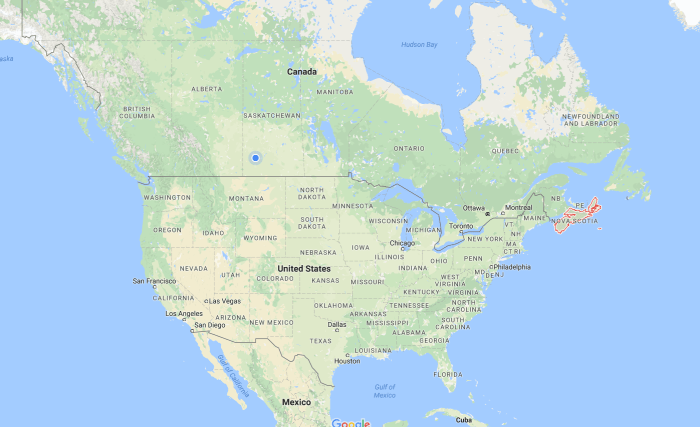United States v. Nova Scotia Food Products Corp. stands as a pivotal case in the annals of environmental law, shaping the legal landscape and setting precedents that continue to guide international trade and conservation efforts today. This case delves into the intricacies of the Lacey Act, highlighting the crucial role it plays in combating illegal wildlife trade and safeguarding our planet’s biodiversity.
At the heart of this case lies the United States’ unwavering commitment to protecting its natural resources and upholding international environmental agreements. As the case unfolded, the legal framework surrounding the Lacey Act was meticulously examined, shedding light on the significance of this legislation in safeguarding endangered species and promoting sustainable practices.
Legal Background

The Lacey Act, enacted in 1900, is a landmark environmental law that prohibits the import, export, and sale of wildlife and wildlife products that have been illegally taken, possessed, or transported.
The United States Fish and Wildlife Service (USFWS) is the primary federal agency responsible for enforcing the Lacey Act. The USFWS has broad authority to investigate violations of the Act and to seize illegally imported or exported wildlife.
Case Overview
In 2013, the United States filed a lawsuit against Nova Scotia Food Products Corp. (NSFPC), a Canadian seafood company, for allegedly importing and selling illegally caught Atlantic cod.
The United States alleged that NSFPC had purchased Atlantic cod from Russian fishing vessels that were operating in the North Atlantic without the proper permits. The United States also alleged that NSFPC had falsely labeled the cod as having been caught in Canadian waters.
Legal Proceedings: United States V. Nova Scotia Food Products Corp

The case was heard in the United States District Court for the District of Massachusetts. In 2016, the court found NSFPC liable for violating the Lacey Act.
The court found that NSFPC had knowingly purchased Atlantic cod from Russian fishing vessels that were operating illegally. The court also found that NSFPC had falsely labeled the cod as having been caught in Canadian waters.
Legal Implications
The case established several important legal precedents.
- First, the case held that the Lacey Act applies to seafood that is imported into the United States, even if the seafood was caught in international waters.
- Second, the case held that the Lacey Act prohibits the import of seafood that has been illegally caught, even if the seafood was caught by a foreign fishing vessel.
- Third, the case held that companies that import seafood into the United States have a duty to ensure that the seafood was legally caught.
International Cooperation

The case also highlighted the importance of international cooperation in enforcing environmental laws.
The United States and Canada worked together to investigate the case and to prosecute NSFPC. This cooperation is essential to ensure that environmental laws are enforced effectively.
Questions Often Asked
What is the Lacey Act?
The Lacey Act is a comprehensive law that prohibits the importation, exportation, transportation, sale, receipt, acquisition, or purchase of fish, wildlife, or plants that have been taken, possessed, transported, or sold in violation of any federal, state, foreign, or tribal law.
What was the significance of the United States v. Nova Scotia Food Products Corp. case?
This case established the principle that the Lacey Act applies to foreign conduct that has a substantial effect on the United States, even if the conduct occurs outside of the United States.
What are the implications of this case for businesses and individuals involved in international trade?
Businesses and individuals involved in international trade must be aware of the Lacey Act and its implications for their activities. They must take steps to ensure that their products are not derived from illegally harvested or traded wildlife.
